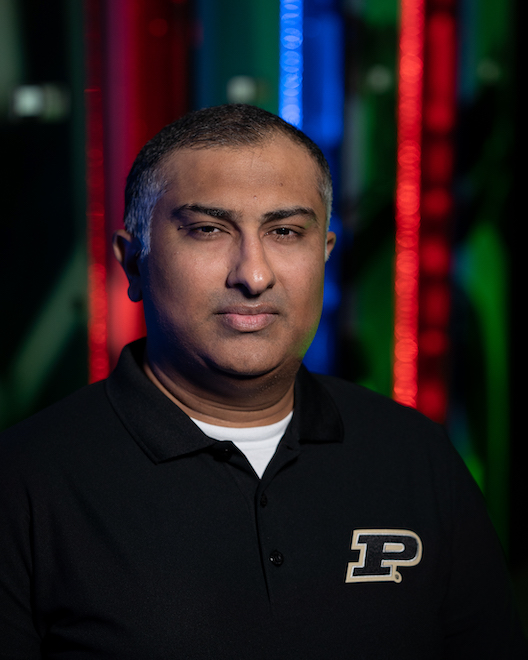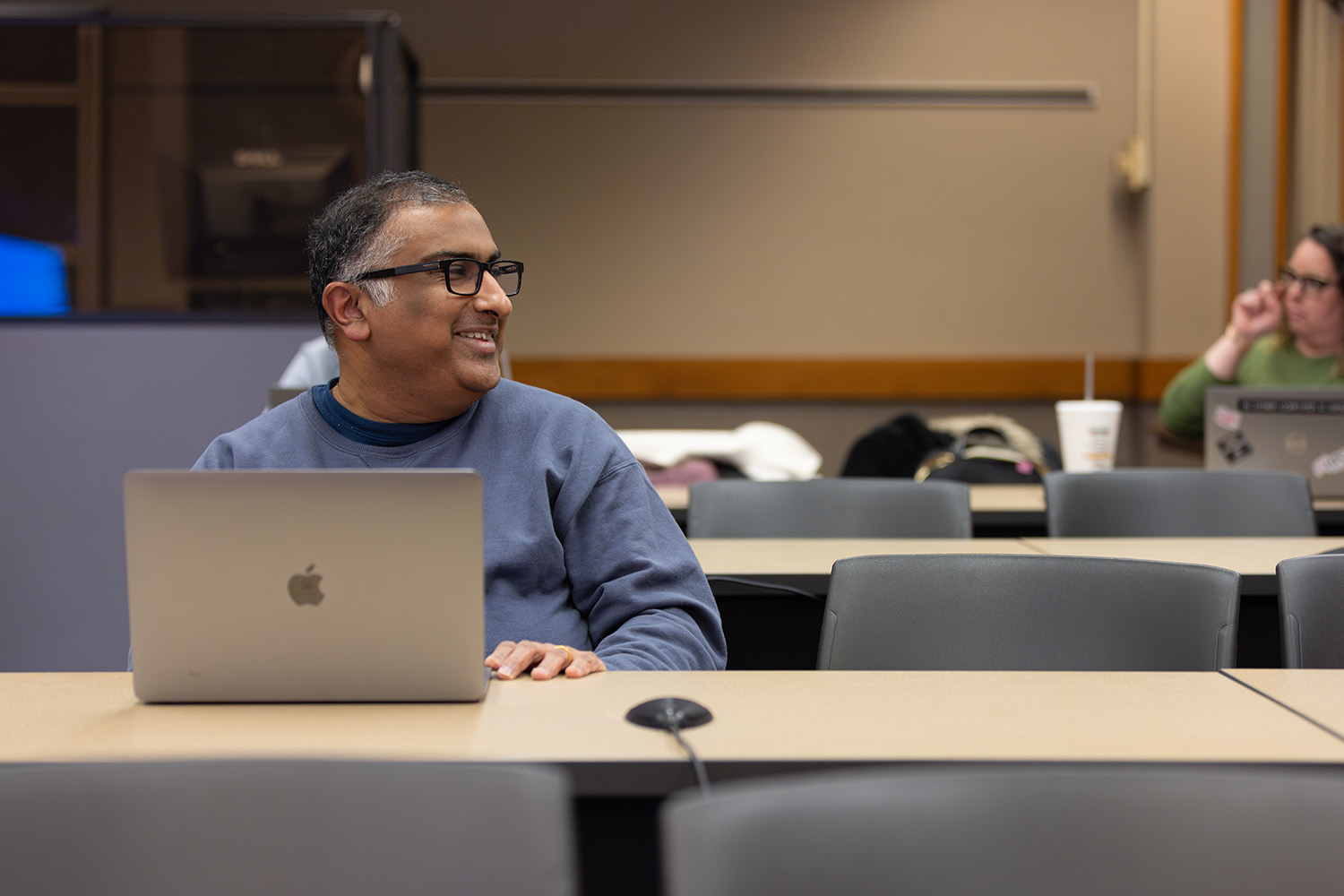News & Events
- There are no upcoming Student Events at this time.
Meet Your Mentor!
We sat down with our 2024 Anvil REU Mentors to discuss their role at RCAC, what their REU students will be working on, and much, much more. Keep reading below to learn more about your mentor.
Rajesh Kalyanam

Please introduce yourself:
My name is Rajesh Kalyanam. I am a Computer Engineer and Research Scientist at the Rosen Center for Advanced Computing at Purdue.
What do you do?
As a computer engineer and research scientist, I work on both software engineering for research projects as well as writing grant proposals in collaboration with faculty who need to use advanced computing resources for their research problems.
Why would I come to you for help?
If you are a researcher who is working on a problem that could use computing resources to either solve a data-wrangling challenge, speed up your work, or collaborate with diverse partners around the world, I can help design and develop a solution for this using various computing resources that we have either deployed at Purdue or have access to.
What’s one professional skill you’re currently working on?
I’m currently working on keeping up with the rapid progress in artificial intelligence and, specifically, deep learning.
What’s your go-to productivity trick?
After testing various productivity tools, I have landed on Notion to manage my tasks. It works as a “second brain” where I can quickly offload ToDos, leaving valuable brain space for my work.
What behavior or personality trait do you most attribute your success to, and why?
Perseverance: my graduate studies were challenging, to say the least, and I was advised by several folks to quit. But I stuck with it for 10 years and finally managed to graduate with a PhD from Purdue.
What was your first job?
My first job was as a software developer at Oracle in India. I worked on their public sector payroll software product for the Netherlands.
What was your favorite job you’ve ever had and why?
My favorite job is the one I stayed in after graduation. I was a research assistant at the Rosen Center for Advanced Computing through grad school. It was a welcome change from the stress of graduate school since I could see tangible results more frequently and got the chance to write papers, travel to conferences, make friends, and learn a lot from the community.
What are you currently excited about in your job?
I am really excited about all the science that we can support with Anvil; also, I get to work with faculty from diverse fields on grant proposals, and it is exciting to both learn about their research and build the tools that can improve their workflows significantly.
What’s a work-related accomplishment that you’re really proud of?
I’m really proud of the successful early user program for Anvil that I helped lead. I was coming in cold with very little knowledge of HPC but was able to ramp up quickly with the help of others on the team.
What’s the biggest misconception people have about your position?
People often think we are software developers or IT support who work on apps and websites. This sometimes leads people to discount the value we can bring to a project. However, the staff at RCAC have deep technical expertise in several domains and research software, as well as software development best practices.
How long have you been on the Anvil team/at RCAC?
I have been at RCAC for 18 years now, first as a research assistant and now as full-time staff for 7 years.
Why did you decide to become a mentor for the REU program?
I enjoy working with students since they bring a lot of excitement and energy to a task. I often wish I had this exposure and mentorship when I was an undergrad myself, which would have helped with better career decisions. I hope to do that for the next generation of students.
What do you hope the REU gets out of the program?
I hope the REU can gain a broad understanding of the career options available in research computing, the nature of work that happens in research computing, and valuable technical experience in their project.
How can this help them in their college career?
The REU experience will provide students with both best practices in software development and in task management. They will also be able to pick up some experience in presentation skills and talking about their work to a broader audience.
How can this help them in their professional career?
The REU program will expose students to the career options that are available in research computing as an alternative to the industry. This will help them make an informed decision when they consider their path forward.
What value do you get from being a mentor for the REU program?
Mentoring is a good way to reinforce your skills and knowledge.
What will your REU students be working on specifically?
Our REU students will be working on developing an easy-to-use dashboard that pulls user information such as storage quotas, job status, and performance data from various sources on Anvil and makes it available on the Anvil Open OnDemand web interface. This will not just lower the barrier to entry to finding this information for users who are new to HPC, but also enable users to inspect trends over time and modify their workflows accordingly
Why HPC?
Pretty much every field now uses computing in one way or another; in fact, most users of our HPC systems are not computer engineers or scientists but graduate students from diverse engineering, science, and humanities fields. Being aware of how to use and develop for HPC is valuable preparation for not just graduate school but also the industry since you will familiarize yourself with modern software packages and coding practices.
Why RCAC/Purdue?
Purdue is a large research school, and RCAC plays a key role in supporting this research. Purdue also has a long history of computing and providing resources like Anvil to the national research community. Staff have a lot of experience in computing and would be valuable mentors.
Where do you see your specialty in HPC in the next 10 years?
RCAC is already at the forefront of HPC: we now support AI applications and cloud computing; in 10 years, I anticipate HPC transitioning to more composable and modular but also heavily-secured technologies and supporting upcoming research in quantum, deep learning, and healthcare.

